Africa
Sudan accuses UAE of contributing to genocide
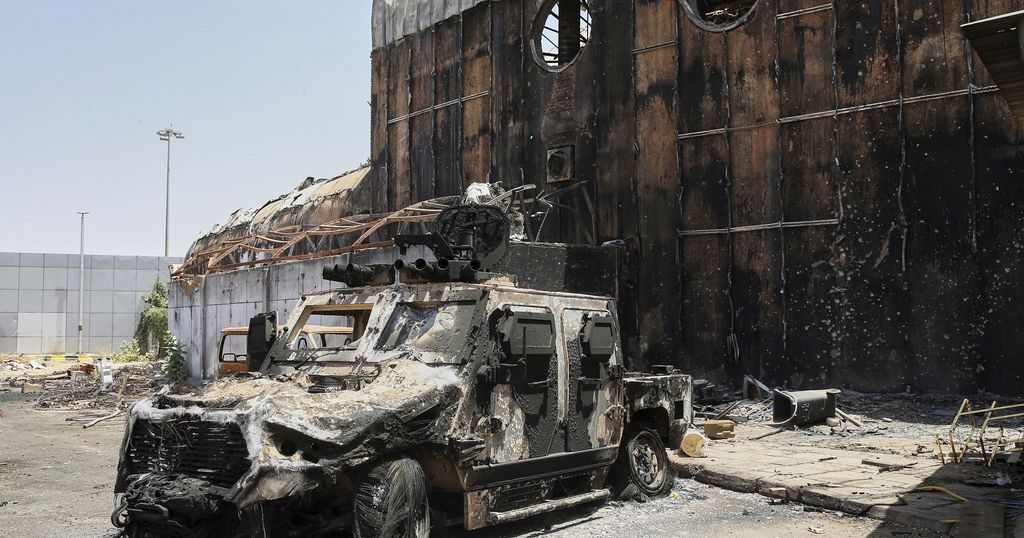
Sudan told the United Nations’ highest court on Thursday that the United Arab Emirates was violating the Genocide Convention by arming and funding the rebel paramilitary group Rapid Support Forces, in a case vigorously contested by the UAE.
Sudan is asking the International Court of Justice to issue emergency orders, known as provisional measures, including orders for the UAE to do everything in its power to prevent the massacres and other crimes committed against the Masalit people during Sudan’s two-year civil war.
“The genocide against the Masalit is being perpetrated by the Rapid Support Force, composed mainly of Darfur Arabs, with the support and complicity of the United Arab Emirates,” said Acting Justice Minister Muawia Osman in his opening statements at the Hague tribunal.
“Everything said in court was circumstantial and did not meet a standard of proof. No credible evidence was presented to support their claims ,” the UAE government said in a statement after Sudan’s presentation ended.
Sudan and the UAE are both signatories to the 1948 Genocide Convention. However, the UAE has a reservation to part of the treaty, which legal experts say makes it unlikely the case will proceed.
“The ICJ has already said that this type of reservation is permissible and constitutes an obstacle to the continuation of a case. It is very likely that the court will say the same thing in this case, which means that the case will not proceed,” Melanie O’Brien, an associate professor of international law at the University of Western Australia and an expert on the Genocide Convention, told The Associated Press.
Sudan descended into deadly conflict in mid-April 2023, when long-simmering tensions between the army and paramilitary rebels erupted in the capital, Khartoum, and spread to other regions. Both the Rapid Support Forces and the Sudanese armed forces have been accused of abuses.
The United Arab Emirates, a federation of seven sheikhdoms on the Arabian Peninsula and a US ally, has repeatedly been accused of arming the RSF, something it has vigorously denied despite evidence to the contrary.
Conflict Observatory, a U.S. State Department-funded monitoring group tracking the war in Sudan, has identified planes it says have been carrying arms transfers from the United Arab Emirates to Sudanese security forces. These flights transited through Maréchal Idriss Déby International Airport in Amdjarass, Chad. The UAE claims the flights were intended to support a local hospital.
In January, the U.S. Treasury Department announced that RSF leader Mohammad Hamdan Daglo Mousa, also known as Hemedti, was under sanctions, along with seven RSF-owned companies in the UAE, one of which deals in gold likely smuggled from Sudan. This decision came as the United States declared RSF rebels to be committing genocide.
According to the United Nations, the war has left more than 24,000 dead and driven more than 14 million people, or about 30 percent of the population, from their homes. An estimated 3.2 million Sudanese have fled to neighboring countries.
The Sudanese armed forces have largely recaptured Khartoum from the RSF. Last month, the army announced it had recaptured Khartoum International Airport.
Africa
Returning home to nothing: Displaced families in eastern DRC face dire humanitarian crisis
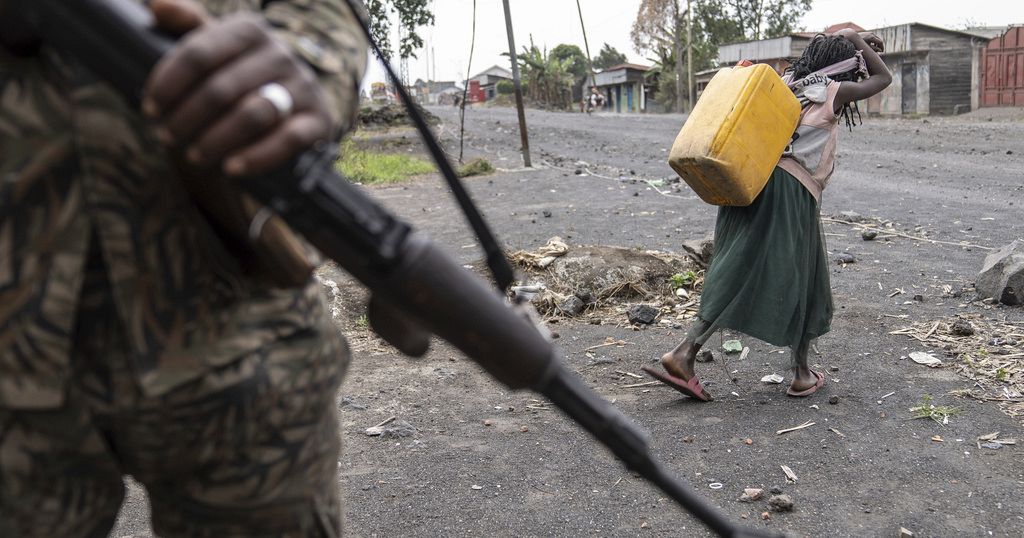
As violence continues to escalate in eastern Democratic Republic of the Congo (DRC), families returning to their communities after months—or even years—of displacement are met with ruin, hunger, and uncertainty.
“These are families that were already displaced before the crisis that has rocked the city of Goma and North Kivu more broadly,” says Hercules Kipa, Head of Emergency Programmes for Concern, speaking from Kibumba. “Following this latest crisis, these communities returned to their areas of origin. These families that are returning home don’t have land to cultivate and have lost their sources of income. They are home, but their humanitarian needs continue.”
The most recent wave of displacement, triggered by renewed violence and the dismantling of internally displaced persons (IDP) camps, has forced over a million people into precarious conditions. Humanitarian actors are on the ground, but their operations are hampered by serious funding shortfalls and a lack of security guarantees.
Beneficiaries like Mediatrice Busogi, who recently returned to Kibumba, share harrowing stories of survival and resilience. “When we returned, we found many dilapidated houses. The luckiest found their houses without doors and without roofs,” she explains. “We used tarpaulins to cover the houses and crammed into them with other families and that’s how we live so far.”
Despite the urge to rebuild, the road ahead is uncertain. For many, returning home is only the beginning of another struggle. In Sake, another hotspot in North Kivu, displaced community representative Byamungu Rukera outlines the priorities: “If we are lucky enough to return to our village, we will need to rehabilitate or rebuild our houses, have food, [and] household items until we can harvest the produce from our fields.”
The United Nations warns that the situation in the DRC remains one of the most complex and underfunded humanitarian crises globally. With more than 25 million people
Africa
Libyan leaders call for an inclusive political process
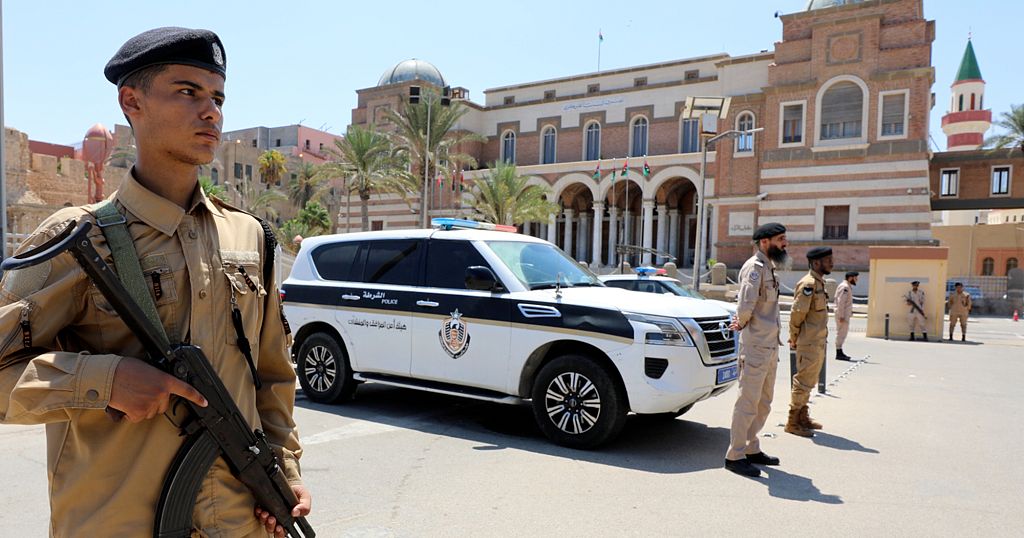
At a United Nations Security Council meeting Thursday, the new Special Representative of the Secretary-General for Libya, Hanna Tetteh, informed the members, “most Libyan leaders call for an inclusive political process and note the urgent need to end unilateral actions, unify institutions, and restore stability.”
Nevertheless, she added, “some believe a new unified government is the only solution, while others argue it will prolong the nearly fifteen-year transition period.”
After having held consultations with leaders, political parties, and civil society actors, Tetteh told the Council she intends “to maintain an inclusive stakeholder approach, ensuring that any outcome is not only Libyan-owned but also enjoys broader Libyan support.”
For his part, Libyan Ambassador Taher M. El-Sonni expressed support for “national processes which are geared towards achievement of consensus, and they should not be called into question.”
Africa
Funeral held in Kenya for TikTok content moderator
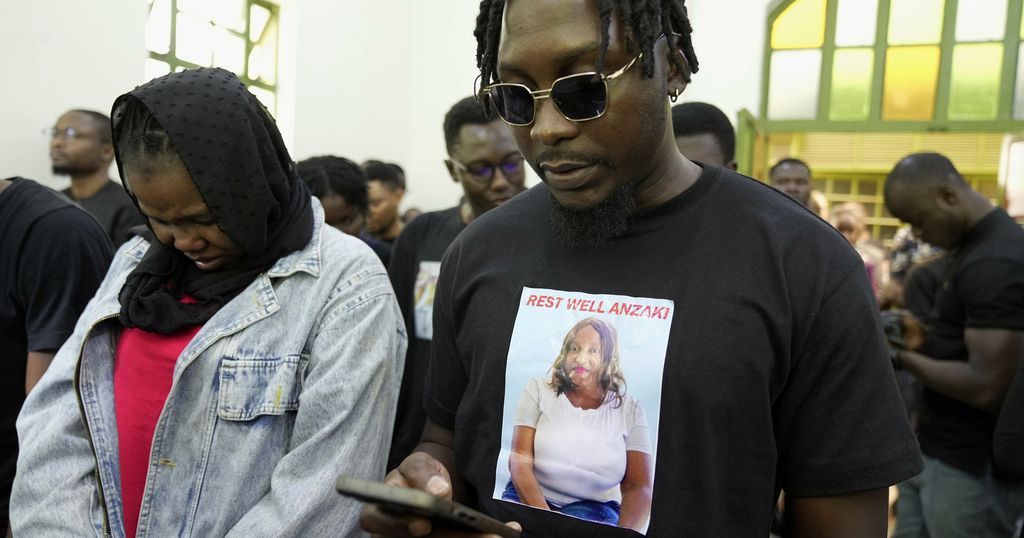
The funeral was held on Thursday for a Kenya-based Nigerian content moderator who died in unclear circumstances last month.
Ladi Anzaki Olubunmi’s decomposed remains were found on March 7 at her apartment on the outskirts of the Kenyan capital, Nairobi, three days after she failed to show up at work.
Among the mourners was her elder brother, who travelled to Nairobi for the emotional ceremony. He was overcome by grief as friends and colleagues eulogised Olubunmi as “selfless.”
Olubunmi, 43, who was employed as a TikTok content moderator subcontracted by a global outsourcing firm, Teleperformance, had complained of fatigue before her death, the cause of which has not been revealed.
She had been living in Kenya since 2022 and only managed to travel back home once, despite having an annual return ticket benefit in her employment contract.
Colleagues said she was “desperate to go home” but was denied leave. Teleperformance Kenya said in a statement in March that she wasn’t denied leave to travel home. In a tribute, a company spokesperson described Olubunmi as “a selfless, compassionate and deeply caring individual.”
Content moderators working for subcontracted firms based in Kenya have in the past described working conditions that they say include lower than average pay, lack of mental health support, long working hours and intimidation.
More than 100 former Facebook content moderators have sued the social media company for poor pay and working conditions and unfair termination of employment.
Tauheed Tayo Yakubu, a colleague of Olubunmi, described her as a champion for better working conditions, detailing how in November 2023, she staged a walkout for Nigerian colleagues demanding for valid work permits.
“She requested that every Nigerian leave the job immediately and then we all marched,” he said.
-

 Education2 days ago
Education2 days agoTrump administration revokes humanitarian parole of Spanish teacher
-

 Europe2 days ago
Europe2 days agoCody Balmer, the suspect in arson at Pennsylvania governor’s home targeted the governor for his views on war in Gaza, warrant says
-

 Conflict Zones20 hours ago
Conflict Zones20 hours agoHaiti in ‘free fall’ as violence escalates, rights group warns | Armed Groups News
-
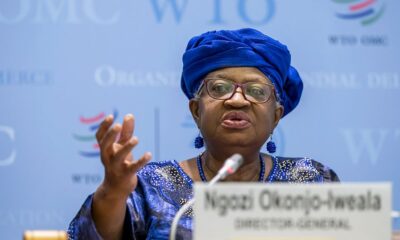
 Africa2 days ago
Africa2 days agoWorld Trade Organization says global trade could slide this year due to tariffs
-

 Sports2 days ago
Sports2 days agoNew Orleans Saints win lawsuit over fleur-de-lis trademark filed by ‘direct descendant of the Kings of France’
-

 Europe2 days ago
Europe2 days agoLive updates: Trump news, immigration and tariff updates
-

 Sports1 day ago
Sports1 day agoMajor League Fishing: Three people dead following boating crash on Lewis Smith Lake
-

 Europe20 hours ago
Europe20 hours agoUS, Ukraine and European officials hold ‘excellent exchange’ in Paris, in highest level talks in weeks




